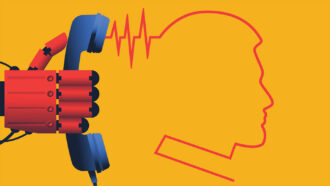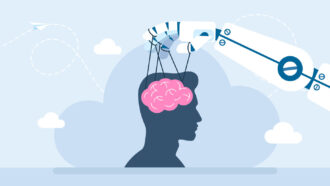Did Facebook put Instagram profits ahead of teen safety?
Former employee said her company ignored its own research on risks to teens’ mental health
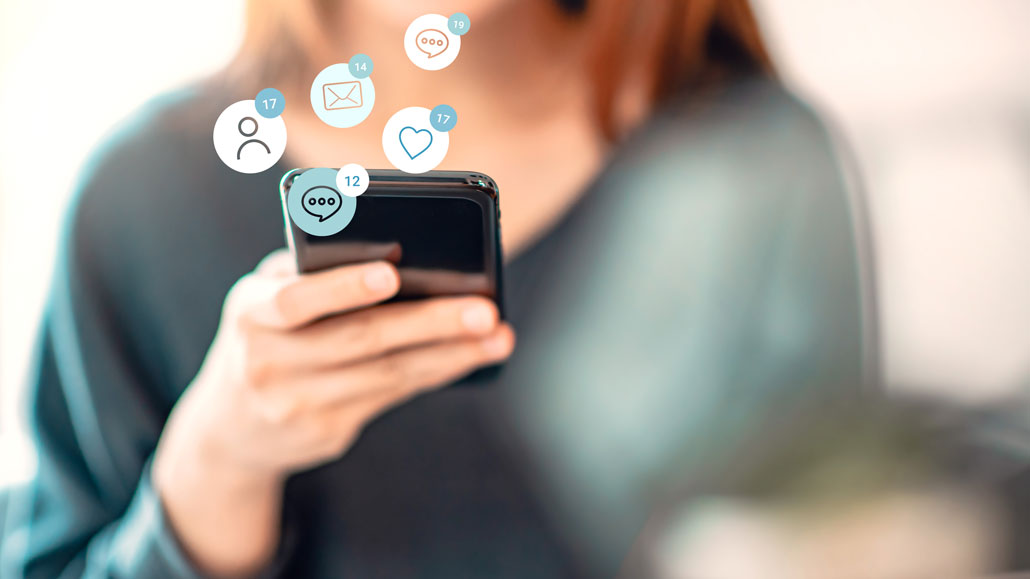
Social-media use has been linked to worsening mood and body-image problems in some pre-teens and teens. Emerging data now ask whether Facebook was aware of this problem in users of its Instagram app and chose to overlook the app’s impact on adolescent mental health.
oatawa/iStock/Getty Images News
Maybe you use Instagram or WhatsApp to stay in touch with friends. Or, maybe you use them as entertainment. For their owner Facebook (which is changing its company name to Meta), these social-media apps are a business that brings in lots of money. Now a former employee says Facebook chose to pursue profits even when it knew some people — especially kids — could be hurt by what was being posted on its apps.
“Facebook has repeatedly misled the public about what its own research reveals about the safety of children,” Frances Haugen told U.S. senators. This former Facebook employee is a whistleblower. That’s someone who reports bad conduct by their employer or former employer. On October 5, she spoke at a senate hearing in Washington, D.C. The Wall Street Journal and the CBS TV show 60 Minutes reported on some of her claims a month earlier.
For starters, Facebook controls what people see on its apps. Algorithms are sets of computer rules. Facebook’s algorithms promote posts that get lots of comments and strong reactions. People spend more time on those posts. And the reward of getting reactions leads the folks who created those posts to add more material. In the end, people spend more time on the apps, so they see more money-making ads.
That kind of ranking doesn’t “care if you bullied someone or committed hate speech in the comments,” Haugen said. The algorithms also could lead people to posts that could be bad for their health, she noted. For example, an Instagram search on healthy eating can bring up links for quack diets or sites promoting disordered eating habits.
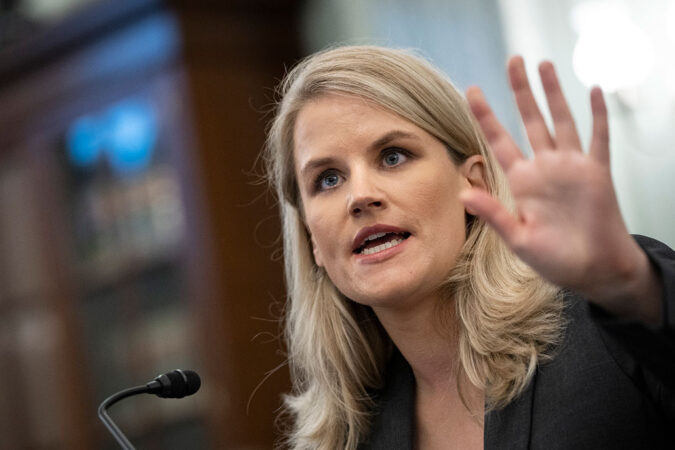
“Facebook’s own research says they cannot adequately identify dangerous content,” Haugen said. So the company “can’t protect us from the harms that they know exist in their own system.”
Haugen also shared information about the company’s work to create a new platform for tweens. “Facebook understands that if they want to continue to grow, they have to find new users,” Haugen said. In other words, “hooking kids.” Since Haugen’s whistleblowing comments, Facebook put its plans for Instagram Kids on hold.
Facebook also did some research on mental-health issues, Haugen noted. The company surveyed select groups of users. Were they sad or lonely? Did they have a poor body image? Did they worry how they compared to others? Did they have trouble sleeping? Was there family stress, and so on. If someone said they had a problem, the survey asked if the person thought Instagram use had an effect. If so, did the person think the the app made things better or worse?
Nearly one-third of teen girls who reported on the survey that they had body-image problems felt Instagram use had made them feel worse. So says a Facebook document first leaked by Haugen. One in every six teen girls with eating issues or sleeping issues thought using Instagram had made their problems worse. And one in every eight girls who had thought about suicide felt Instagram had made the problem worse.
Antigone Davis heads global safety for Facebook. She’s based in the greater Washington, D.C. area. A Senate committee asked her about the surveys on September 30. “It’s not causal research,” she said. For most problem issues, Davis told the senators, more surveyed teens felt Instagram had helped them, compared to those who said the app made things worse. Still, the company’s notes on a summary of some of its research say the disturbing findings “should not be ignored.”
What do studies show?
Facebook’s research on teens “could give researchers important clues about what to follow up on with scientific studies,” says Laurence Steinberg. He’s a psychologist at Temple University in Philadelphia, Penn.
There’s no information yet to show if Facebook actually did any of those studies. So it might have ignored the disturbing findings. And it didn’t release any data on its surveys until after Haugen shared them.
Like Davis, Steinberg says Facebook’s research does not prove that the site caused bad feelings in kids. “Just because we observe an association between two things doesn’t mean that one causes the other.” Something else might be causing the two things. Or they might be completely unrelated, he says.
And, he adds, the Facebook survey does not meet the rigorous standards for a sound scientific study.
Those points matter as regulators think about how to respond to these claims. Any recommendations about physical or mental health “should be grounded in science and not just opinion and anecdote,” he says.
Teens who answered Facebook’s questions about their mental health and Instagram were part of a larger group. Their perceptions weren’t necessarily reliable, Steinberg says. There were no data from other groups to compare with these Instagram users.
In fact, some girls felt Instagram helped them feel better, the survey found. How would any policy changes affect them, he asks? “We’re always having to balance pros and cons,” Steinberg says. There have been too few rigorous studies about social media’s impacts on teens to truly know its impacts. And what studies there are don’t paint a clear picture, he adds.
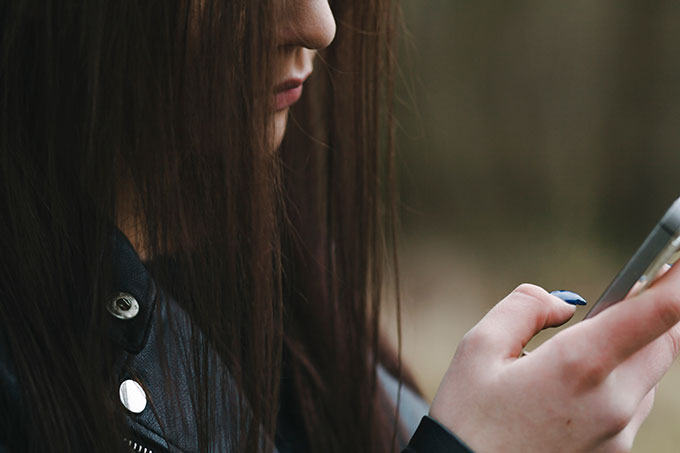
In any case, “it’s very concerning that Facebook was kind of sitting on their own research like this,” says Rosa Li. She’s a psychologist and neuroscientist at the University of North Carolina at Chapel Hill. Research suggests, she says, that on average, there’s very little negative effect or no relationship between social media and mental health “So, for the average person, it’s probably okay.”
“However,” she adds, “if you look at individual studies, you start to see that there’s some individual differences that really seem to matter.” In other words, “there are some kids that are vulnerable,” she says. “And those are the kids we want to watch out for.” For example, kids who are not popular appear to be more vulnerable. Or, they may already not feel comfortable with the way their body looks or with comments from others about their weight.
Magazines, TV and other types of media might also help harm body image or add to other mental-health problems, Li noted. But with social media, she says, “it’s so much more intense and so much more personal than what we’ve had in the past.” Plus, as Haugen said, teens are often on social media from early morning until late at night.
Do a self-check
“The goal of social-media companies is to get you to stay on their site for as long as possible,” Li says. They don’t care how the posts make you feel, “or whether or not [they’re] best for your goals and personal well-being,” she adds. The companies aren’t out to make the world a better place. “Their motivation is to make as much money as possible.”
The more time you spend on posts, the more time you’re exposed to ads on social media apps. And the more users there are, the more people there are to spend time on the apps. No wonder, then, that Facebook was looking to add more teens and even tweens to its list of users.
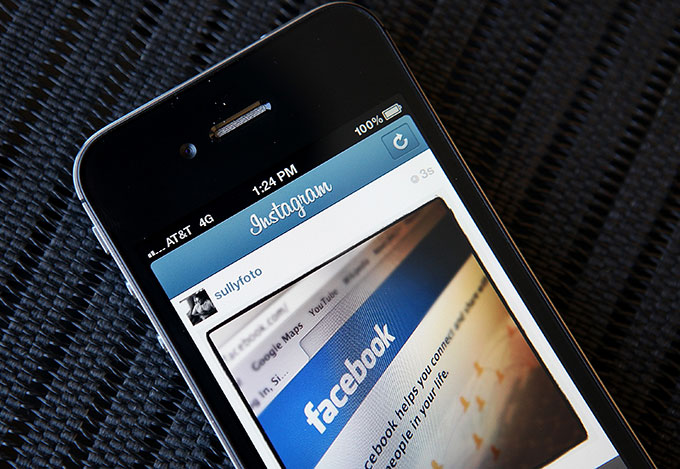
During adolescence, kids tend to seek out stimuli that reward them, research shows. Teens and ‘tweens also care a lot about their social lives. And many of them have limited self-control. From a company’s point of view, that adds up to “this perfect social-media user,” Li says.
As a result, you might spend more time on social media than you intended. While there, you might be led to false or misleading information. Or, you might find yourself in a worse mood, even if a mental-health expert wouldn’t say that mood is bad enough to count as a disorder.
“Almost every kid could be using social media in better, healthier ways, even if they’re not having measurable negative effects,” Li says. For starters, she suggests, stay off social media for a full day. Focus on how you feel during that time. And think about what you do instead. For example, do you talk more with a friend on the phone? Or do you have a long face-to-face conversation with someone?
Then be mindful when you go back on social media. Do a mood check beforehand. Then note how you feel at the end. Some of Li’s students found they felt worse afterward than at the start. A mood change after using social media might be like a little cut, Li says. It might not cause a long-term impact. But it can make you feel worse in the moment. Beyond that, think about how and when you use social media.
If you’re feeling down, Steinberg adds, “you shouldn’t do something that’s going to make you feel even more depressed.” Similarly, “If you notice there are particular people’s postings that make you feel bad, then don’t follow those people. Just follow the people whose postings make you feel good.”
In any case, if you feel really bad, “talk to somebody about it,” Steinberg says. Turn to your parents, a counselor or a mentor. Don’t try to just tough it out on your own. No matter what their cause, mental-health problems can be dangerous. But there’s good news: Mental-health problems also can be treated.
“You shouldn’t worry about trying to figure out why [you’re feeling bad],” Steinberg says. “You should worry about how you’re feeling. And you should talk to somebody about your feelings.”
Suicide is the second leading cause of death among young adults ages 15 to 29 as of 2016. If you or someone you know is suffering from suicidal thoughts, please seek help. In the United States, you can reach the Suicide Crisis Lifeline by calling or texting 988. Please do not suffer in silence.



